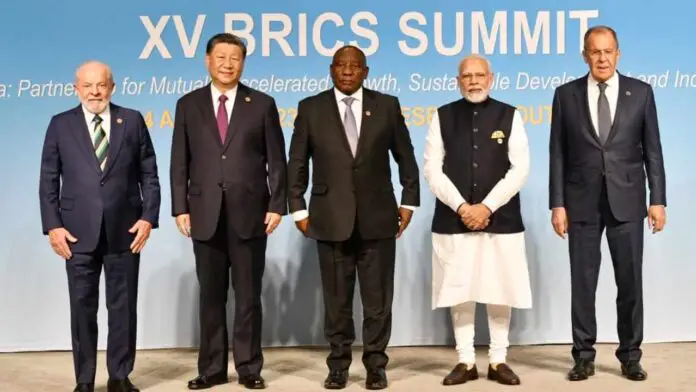The Significance of Local Currencies in International Trade: Insights from the BRICS Summit
The annual BRICS summit, a congregation of the world’s leading emerging economies—Brazil, Russia, India, China, and South Africa—recently concluded its 15th meeting in the vibrant city of Johannesburg. Under the thematic banner of “BRICS and Africa: Partnership for Mutually Accelerated Growth, Sustainable Development, and Inclusive Multilateralism,” the BRICS leaders expressed their commitment to fostering a robust framework of cooperative endeavors. The Johannesburg II Declaration unveiled at the summit echoes the group’s dedication to strengthening international trade and financial transactions through the promotion of local currencies.
A Forward-Looking Outlook
Emphasizing the vital role that swift, transparent, and secure payment systems play in global commerce, the BRICS leaders have underscored their collective stance on encouraging the utilization of local currencies in cross-border transactions. This move aims to diminish reliance on dominant international currencies and foster a more diversified and balanced financial landscape. By endorsing the use of local currencies, the BRICS nations aim to establish a more equitable global economic order that benefits both developed and developing economies.
Paving the Way for Inclusive Financial Systems
The BRICS leaders are not solely focused on promoting the use of local currencies but also on reinforcing the underlying financial infrastructure. Correspondent banking networks, which facilitate international financial transactions, are set to be fortified among BRICS nations. By enabling settlements in local currencies, the leaders aspire to eliminate some of the inefficiencies associated with traditional currency exchange mechanisms. This endeavor holds the potential to reduce transaction costs, minimize delays, and enhance the overall efficiency of global trade.
A Pioneering Step: Finance Ministers and Central Bank Governors Tasked
In a decisive move, the BRICS leaders have entrusted their finance ministers and central bank governors with the pivotal responsibility of evaluating the feasibility of incorporating local currencies, payment instruments, and platforms in international trade. The significance of this initiative lies in its potential to establish an ecosystem that nurtures self-sufficiency and minimizes external dependencies. As these financial leaders delve into the intricacies of local currencies, their findings will guide the future course of action and pave the way for the next summit.
Russia’s Role and the Path Ahead
As the bearer of the 2024 BRICS Chairship, Russia is poised to host the XVI BRICS Summit in the historic city of Kazan. This leadership role places Russia at the forefront of driving discussions and shaping policies that center around the effective utilization of local currencies in international trade. With its rich economic heritage and diplomatic prowess, Russia is well-positioned to champion the cause of inclusive financial systems and pave the way for a more equitable global economic landscape.
The Role of the New Development Bank
Embedded within the declaration is the recognition of the New Development Bank (NDB), also known as the BRICS Bank, for its instrumental role in fostering infrastructure development and sustainable growth across member countries. Going beyond the founding BRICS nations, the NDB has extended its reach to include Bangladesh, the United Arab Emirates (UAE), and Egypt as members, with Uruguay eagerly poised to join.
Expanding the Horizon: BRICS and New Members
The BRICS economic bloc, recognizing its potent influence, has extended invitations to six countries to join its ranks: Argentina, Egypt, Ethiopia, Iran, Saudi Arabia, and the UAE. With a remarkable 23 countries formally expressing their interest in membership, the BRICS summit is poised to evolve into a more diversified and impactful platform for economic collaboration. The nations have tasked their foreign ministers to curate a comprehensive roadmap for integrating partner countries and report their progress at the next summit.
Conclusion
In conclusion, the BRICS leaders’ emphasis on the importance of encouraging local currencies in international trade and financial transactions is a significant step towards redefining the global economic narrative. This commitment showcases their collective resolve to foster a more balanced, inclusive, and equitable financial ecosystem. As they entrust their finance ministers and central bank governors with the task of exploring the potential of local currencies, the future holds the promise of innovative solutions that can shape the world’s economic landscape.
The annual BRICS summit continues to serve as a melting pot of ideas and initiatives, with the forthcoming Russia-led summit in Kazan poised to carry forward the torch of progress. The commitment to enhancing financial inclusivity and sustainability remains unwavering, and the global community eagerly anticipates the outcomes of these visionary endeavors.







